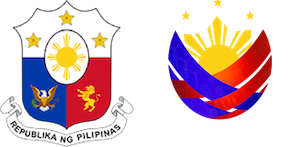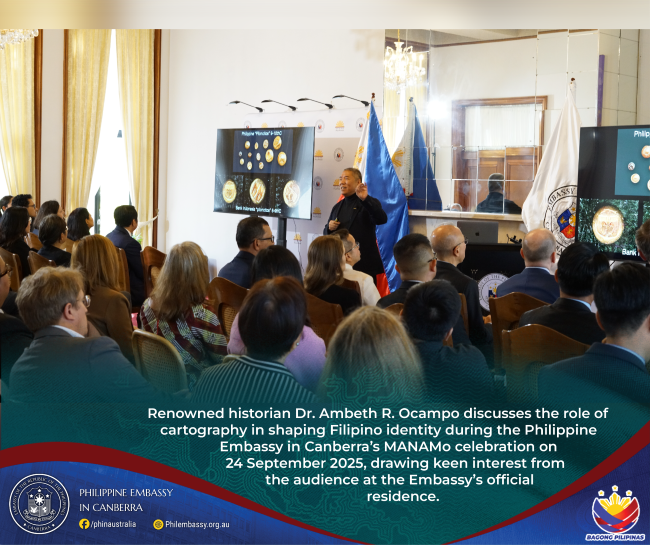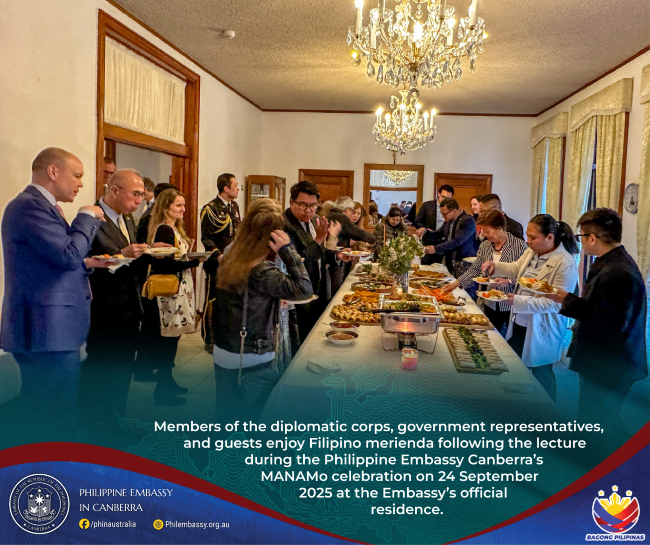
PRESS RELEASE
Philippine Embassy, Canberra
1 Moonah Place, Yarralumla, ACT 2600
www.philembassy.org.au *Tel. No. 02-6273-2535*

24 September 2025, Canberra – The Philippine Embassy in Canberra, in partnership with the National Commission for Culture and the Arts (NCCA), led by Ambassador Antonio A. Morales, marked the celebration of Maritime and Archipelagic Nation Awareness Month (MANAMo) by hosting a special lecture by renowned Filipino historian Dr. Ambeth R. Ocampo on 24 September at the official residence. Titled 'Dr. Ambeth Ocampo on Maps and the Emergence of the Filipino Nation,' the lecture examined how maps have shaped Filipino identity and cultural heritage, highlighting the vital role of geography in the nation's history and consciousness.
Ambassador Morales welcomed the distinguished guests, members of the diplomatic corps, representatives of the Australian government, and the Filipino community. In his opening remarks, he said, “Maps are far more than navigational tools. They are powerful instruments that have influenced how we see ourselves as a people and how the world perceives the Philippines.” He also highlighted the significance of the event as part of MANAMo, a commemoration that underscores the Philippines’ profound connection to the sea and its identity as an archipelagic nation.
Dr. Ocampo guided the audience through a fascinating exploration of how maps have not merely charted the country’s geographical boundaries but have fundamentally influenced Filipino consciousness and cultural heritage. The lecture emphasized the intersection of geography, history, and national identity, illustrating how historical cartography continues to inform contemporary understanding of the Philippines’ maritime heritage.
MANAMo, established through Presidential Proclamation No. 316 in 2017, encourages Filipinos to deepen their appreciation of the nation’s maritime legacy and its crucial role as an archipelagic state. Ambassador Morales noted that the Philippines, with its more than 7,600 islands and rich marine biodiversity, exemplifies the intricate relationship between geography and national identity, with its waters supporting over 52,100 species and forming part of the Coral Triangle, home to nearly 10% of the world’s coral reefs.
Dr. Ocampo, a professor of history and the humanities at the Ateneo de Manila University, has previously held academic appointments at the University of the Philippines, De La Salle University, Chulalongkorn University, the University of Michigan, and Kyoto University. He also served as Chairman of the National Historical Commission of the Philippines and the National Commission for Culture and the Arts and writes Looking Back, the longest-running editorial column on history in the Philippine Daily Inquirer.
The event drew a diverse audience from the academic community, diplomatic circles, and the Filipino community in Canberra, reflecting a shared interest in Philippine history and the nation’s maritime and archipelagic identity. Through this lecture, the Embassy continues to promote initiatives that encourage critical engagement with the Philippines’ history while celebrating its unique maritime heritage. END


